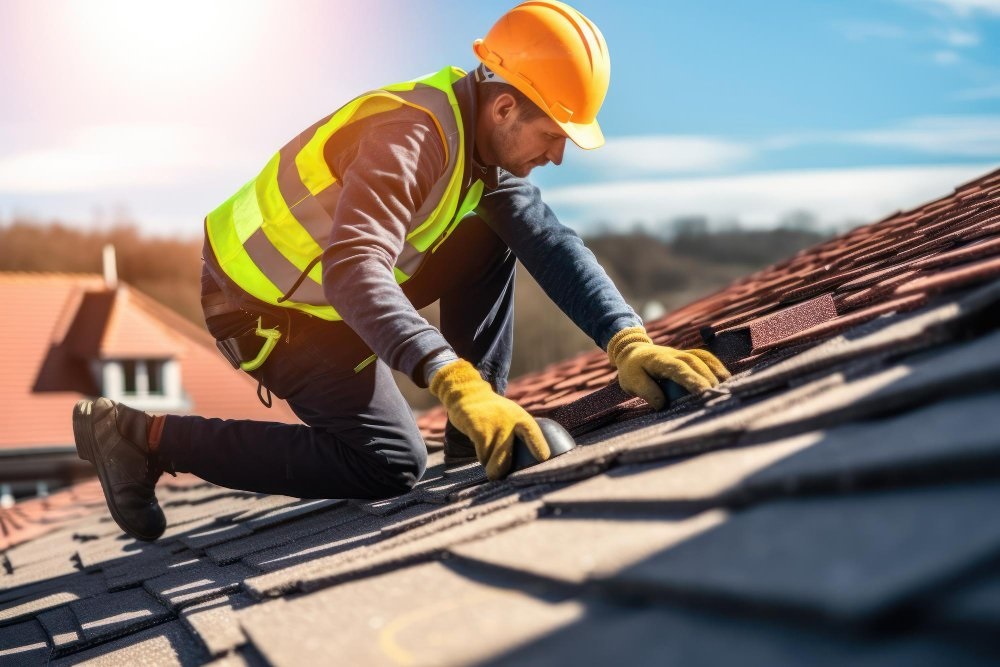The roof of your commercial building is more than just a protective layer; it’s a vital component that safeguards your inventory, equipment, and most importantly, your employees. Unlike residential roofs, commercial roofs are typically larger, flatter, and require more robust materials to withstand the elements and ensure the uninterrupted operation of your business. When it comes to commercial roof installation, selecting the right roofing contractor is paramount for a successful outcome. This article will explore the complexities of commercial roof installation and guide you through the process of finding qualified roofing professionals to execute this crucial project.
Understanding the Nuances of Commercial Roof Installation
Commercial roof installation is a specialized undertaking that differs significantly from residential roofing. Here’s a breakdown of some key aspects to consider:
- Material Selection: Commercial roofs come in various materials, each with its own advantages and drawbacks. Popular choices include modified bitumen, metal roofs, TPO (thermoplastic polyolefin), and EPDM (ethylene propylene diene monomer). Factors like climate, budget, and desired lifespan influence the most suitable material for your specific project.
- Building Structure: The weight and support capabilities of your building’s structure play a crucial role in determining the type of roof that can be installed. A qualified roofing contractor will conduct a thorough assessment of your building’s structure to ensure the chosen roofing system is compatible.
- Drainage Systems: Commercial roofs require effective drainage systems to prevent water pooling and potential leaks. The design and installation of these drainage systems are crucial for the long-term performance of your roof.
- Safety Considerations: Commercial roof installation involves working at heights and handling heavy materials. Strict safety protocols are essential to protect workers and minimize the risk of accidents. Qualified roofing contractors prioritize safety by using proper fall protection equipment and enforcing safety regulations on the job site.
The Role of the Roofing Contractor: Expertise Beyond Installation
A qualified roofing contractor is more than just an installation crew; they are partners in safeguarding your business. Here’s what you can expect from them:
- Pre-Construction Planning: Experienced roofing contractors will work closely with you to understand your specific needs and budget. They will conduct a thorough inspection of your existing roof (if applicable) and your building’s structure. This allows them to develop a detailed plan for the new roof installation.
- Material Selection and Procurement: They will guide you through choosing the most suitable roofing material for your project, considering factors like climate, budget, and desired lifespan. They will also handle the procurement of high-quality roofing materials from reputable suppliers.
- Code Compliance and Permitting: Commercial roof installations must adhere to stringent building codes and safety regulations. Qualified roofing contractors ensure all necessary permits are obtained and that the installation process complies with all applicable codes.
- Project Management and Communication: They will manage the project timeline and budget effectively, keeping you informed throughout the construction process. Open and clear communication is essential to address any questions or concerns you may have.
- Quality Workmanship and Inspections: Experienced roofers utilize proper techniques and adhere to industry best practices to ensure a high-quality and long-lasting roof installation. They will also conduct thorough inspections throughout the process to identify and address any potential issues.
Conclusion:
Investing in a high-quality commercial roof installation provides your business with several benefits:
- Enhanced Durability and Longevity: A well-installed commercial roof can last for decades with proper maintenance, minimizing the need for frequent repairs and replacements.
- Improved Energy Efficiency: Modern commercial roofing materials offer superior energy efficiency, potentially leading to lower energy bills for your business.
- Peace of Mind: Knowing your building is protected from the elements allows you to focus on running your business with


